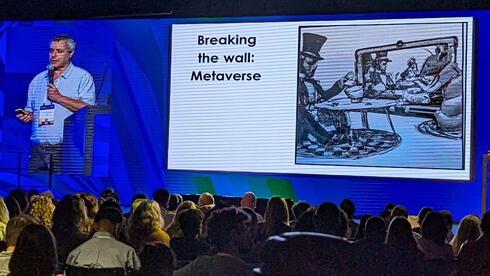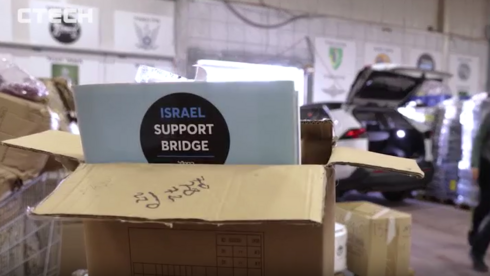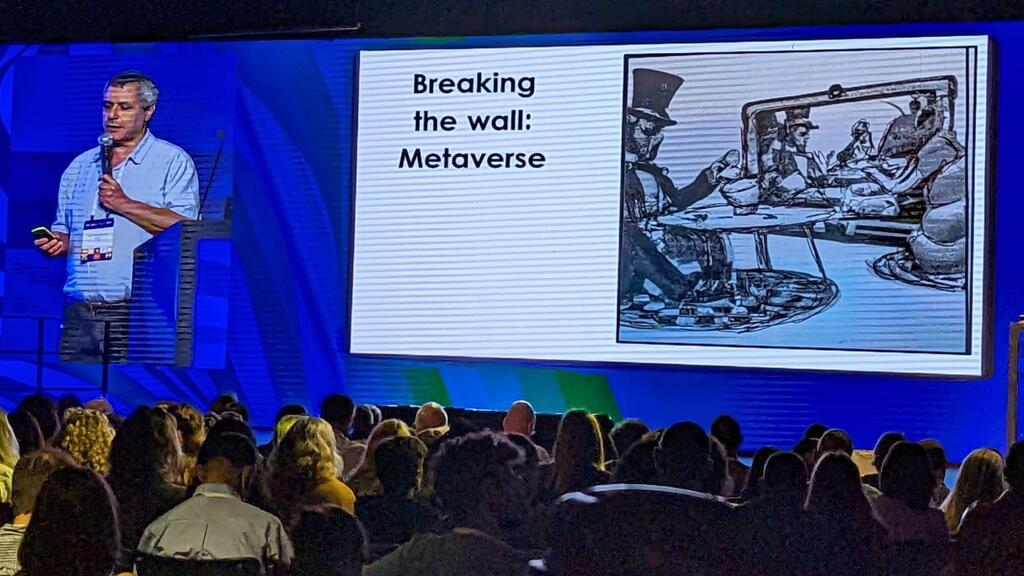
“The worst space you can learn in, is a classroom”
Avi Warshavsky, Founder and CEO of MindCET, was speaking at the EdTech week conference, which was centered around ways to shape the future of education
“In the past there was the digital world and the real world and we could be two different people in both worlds. Now, those borders are blurring. We are being treated as a consciousness without a body and have reached a tipping point where we are moving from ‘anytime, anywhere, any device’ to ‘sometime, someplace, some device’”. Avi Warshavsky, Founder and CEO of MindCET, said at the EdTech week conference on Tuesday. “Today, we are breaking the wall with new technologies such as IoT, AR and the Metaverse.”
There were more buzzwords in the presentation provided by Yossi Baidatz, CEO of The Center for Educational Technology, including: independent students, equality, hybrid learning environments, etc. However, no clear vision was expressed, proving, once again, that education technologies are still lagging behind the entire industry.
Dr. Timothy Summers, Executive Director of Product Development at Arizona State University (ASU), spoke about Pocket, a digital wallet and portfolio to capture achievements, though it was not clear how this was any different from LinkedIn. Hasrah Thomas, Director, Realm 4 Initiatives, at ASU, discussed Dreamscape, which is a VR studying experience that currently has 600 students in a pilot. However, it was easy to picture how years ago a similar idea was marketed at a similar event where video was probably the main buzzword.
A ray of light for the industry came mostly in the form of startups showcasing their products outside the main event. Jotit, Amplio and Code Monkey were just a few of the companies that showed any innovation.
Yair Shapira, CEO of Amplio, began his pitch with worrying statistics. “One in five kids in the U.S. needs special education and this has a very negative impact on their lives. Studies show that two out of three kids will end up in prison if they do not read proficiently by fourth grade. Moreover, the number of prison cells that are built today is based on the number of dyslexic children that are now entering middle school.” He then explained how Amplio is combating the phenomenon. “We developed a platform that assists kids' progress within the schools in tandem with their therapists, educators and instructors. It is based on profound technologies such as natural language processing, special text capabilities, word to art capabilities etc. We have evidence that students can progress sometimes as much as 10x faster using our platform.”
Founder of Jotit, Yuval Chomski, noted: “Jotit is an electronic notebook solution that replaces all the learning materials that a student has. Everything that is on paper is basically replaced by this device.
“The product has two core technologies. Screen technology, which is like a kindle, it is healthy, there is no blue light so it doesn't hurt your eyes. The other is handwriting technology, which is the closest to writing on paper. Studies show that handwriting is important for creativity and for learning. Introducing laptops at an early age showed that kids were not internalizing the material.
“With Jotit the child works as if they were using a notebook. Kids can come to school with only our device and a lunchbox, no need for heavy bags. Also, everything is backed in the cloud so no need to worry if it breaks. Finally, Teachers can easily upload new materials.”
Zack Isakow, VP sales and business development at Code Monkey, explained the technology developed at his company. “Code Monkey was founded in 2014, we started off with a small activity teaching kids aged 5-14 how to code and ended up with a ton of traction. This is because our courses are extremely engaging and offer gamified features. Students feel comfortable, so much so that we are currently offering two parts to the business - schools and ministries of education and home licenses where companies and parents can buy the courses for their kids.”
What is it that Code Monkey is doing differently?
“Most global coding programs focus on block-based coding that is mostly theory. Kids are using this until middle school. However, in high school, they have python courses and so there is a gap between what they know and what they need to learn. We offer block-based coding until second grade where we then move them on to coffee script and by middle school they are already doing python. We are giving them the skill set they need so that they are not starting from scratch.”















